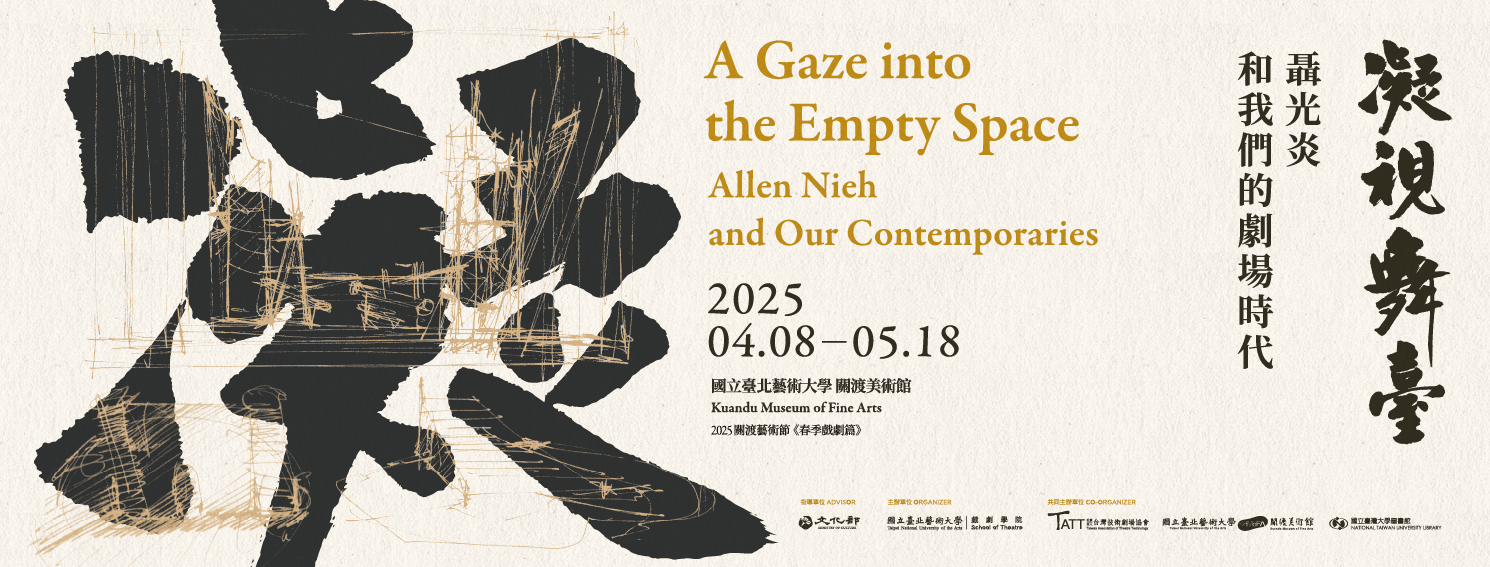Allen Nieh
Mr. Allen Nieh was born in Shanghai in 1933 and came to Taiwan amidst the turmoil of war, where he began his theater career with a military troupe. In 1953, he was admitted to the theater division of the Fu Hsing Kang College. In 1963, he traveled to the University of Hawai‘i under the East–West Center’s technical exchange program. Upon returning to Taiwan, he taught at Chinese Culture University and Shih Hsin University while continuing his work in stage and lighting design. Spanning more than 150 productions across genres, covering theater, Peking opera, Kun opera, Taiwanese opera, dance theater, and Western opera, his notable works include Snow in August, Medea, Secret Love in Peach Blossom Land, The Injustice to Dou E, The Peony Pavilion, Wandering in the Garden, Waking from a Dream, Yan Zi and His Wife, and The Man from Wuling. Known for his ability to precisely capture each script’s essence, Nieh skillfully merged Eastern and Western theatrical aesthetics, becoming a living embodiment of Taiwan’s evolving technical theater landscape.
From the early post-war era to the dawn of the new century, from hand-drawn sketches to computer-aided design, Allen Nieh played an active role across every chapter of the theater's evolution. He was well-versed in global stage design aesthetics while also deeply rooted in Chinese philosophy, literature, and cultural history. His design style reflected the graceful temperament of a traditional Chinese scholar blended with the pragmatic aesthetics of contemporary art. Prioritizing both safety and functionality, his work was also infused with the rich philosophical layers of Confucianism, Daoism, and Buddhism. Much like the man himself, Nieh’s creations were understated and refined, never overshadowing the performance, yet built on a solid foundation and far-reaching vision that profoundly shaped an entire generation of theater makers.
Allen Nieh consistently remained at the forefront of the times and information, always learning, reflecting, designing, and working. Equally committed to mentorship, he generously shared his knowledge and nurtured the next generation. His contributions laid the professional foundation and standard for theater technology in Taiwan and brought the aesthetics of Taiwanese stage design into the international spotlight. His designs are not only integral to the theater, but also stand as lasting testaments to the evolution of our era in theater.
